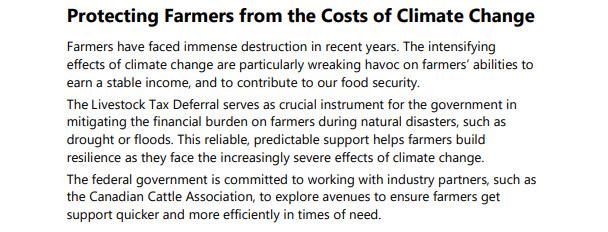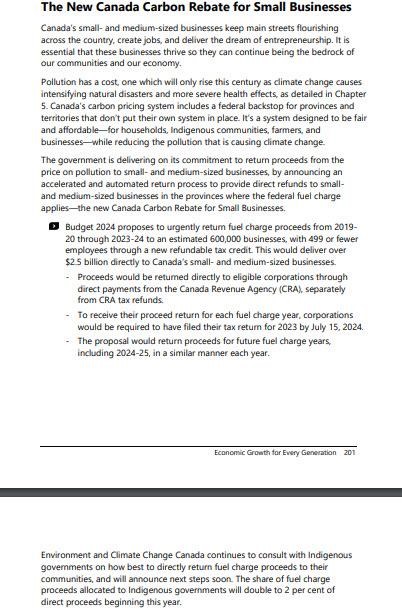The Wheat Growers Association calls it “woefully bloated”
By Diego Flammini
Staff Writer
Farms.com
Members of the Canadian ag industry have mixed feelings, but mostly negative ones, when it comes to the federal budget’s contents.
The Canadian Federation of Agriculture (CFA), for example, says while the commitment to consultations on equipment interoperability and increases to Lifetime Capital Gains Exemptions are welcomed, multiple industry issues went unmentioned.
The budget didn’t address labour challenges or trade infrastructure, the organization said in a statement.
And the continued pressure of the carbon tax, plus no upgrades to risk management programs means the budget falls short of what Canadian farmers need.
“While we understand there are competing priorities for government funds, with erratic weather and high prices tremendously increasing the risk profile of Canadian agriculture, the government can ill-afford to ignore food production and Canadian farmers,” CFA President Keith Currie said in a statement.
The Liberal budget and its nearly $40 billion deficit in 2024-25 will do little to address the needs of Canadian farmers, said Daryl Fransoo, chair of the Wheat Growers Association.
“It’s unfortunate the federal government has once again failed to support Canadian grain farmers,” he said in a statement. “We are most efficient at growing highest quality grains and oilseeds, yet the government is either putting roadblocks into the supply chain or not supporting the changes needed to continue to grow this sector.”
One of the roadblocks the group highlighted is Bill C-234.
Senators sent the bill back to the House of Commons where it awaits further debate.
“The federal government has worked to defeat C-234, a bill that would provide immediate relief to grain farmers from the negative impact of the carbon tax on grain drying,” the organization said. “The government fails to understand that these costs impact grain farmers and their ability to grow grain for domestic and export consumption.”
The Wheat Growers also hoped for changes to the Canada Grain Act.
The legislation is outdated, which costs farmers.
“There are many efficiencies that could be gained by bringing the Act into the 21st Century,” the group said. “As an example, farmers are paying for double inspections on over 70% of export vessels simply because customers of Canadian grain demand the 3rd party certificate rather than CGC’s legislated certificate. This costs farmers tens of millions of dollars annually based on outdated legislation.”
One organization supported the government for a commitment to its sector.
In the “Protecting Farmers from the Costs of Climate Change” portion of the budget document, the Liberals commit to “working with industry partners, such as the Canadian Cattle Association, to explore avenues to ensure farmers get support quicker and more efficiently in times of need,” related to the Livestock Tax Deferral program.

On X, the National Cattle Feeders Association said it is “pleased with the federal budget commitments that support Canada’s beef sector including a commitment to create a more efficient Livestock Tax Deferral program.”
The Fruit and Vegetable Growers of Canada had mixed feelings with the budget.
The group made 18 recommendations in pre-budget consultations but felt the government “largely overlooked” the sector, it said on X.
The organization highlighted the new Canada Carbon Rebate for Small Businesses and the continuation of the Advance Payments Program as positives.
